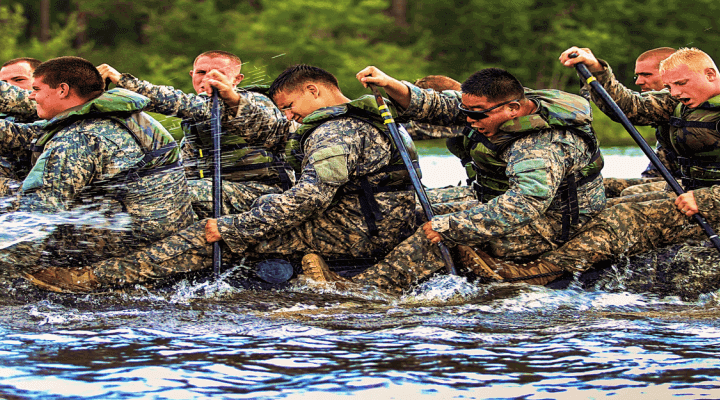“Start being a leader as soon as you put on your civilian clothes. If you see intolerance and hate, speak out against them. Make your individual voices heard, not for selfish things, but for honor and decency among men, for the rights of all people.”
— General Jonathan M. Wainwright
Transitioning from military service can be a challenging experience, often more so after a lengthy career: new people, a different taxonomy, and a strange, often alien work environment. Some of us land on friendly ground, assuming roles in the federal workforce or the defense contracting arena. Others find a happy medium, where the potential shock of transition is softened by landing among other veterans. Others still find themselves alone in the wilderness, which can be a lonely place after spending years in familiar territory.
There’s no shortage of advice for making the transition. Even a basic Google search will reveal pages of studies, articles, and blog posts on the subject: tirelessly prepare yourself, translate your skills precisely, and network like there’s no tomorrow. More difficult to find, however, is reliable advice on succeeding in the post-transition world. What do you do after you hang up that uniform for the last time? How do you make as much of an impact in your new career as you once did?
As much as transition requires you to adapt to a new post-military reality, success following that transition depends largely on your ability to play to the strengths developed during your years in uniform. The same skills and attributes that drove your success while serving will prove crucial to your ability to “hit the ground running” on your new career path
Leadership:
Simply put, the military is a leadership crucible. Our culture is built around the ability to lead, make tough decisions, and take care of others. Not surprisingly, those are important skills outside the military, as well – important, and often rare. Once you show a willingness to lend your leadership experience when it matters most, people will take note. Take “Skinny” Wainwright’s words to heart. Be a leader.
Planning:
Nobody plans quite like the military. Whether for a major combat deployment or a division change of command, we plan everything to minute detail. Although we often make light of our own planning processes, those processes become ingrained in our thinking over time. Almost by default, we resort to a level of analytical thinking that is uncommon in most circles. Leverage this experience to advantage. See “the big picture” where others might not; see patterns, relationships, and consequences; and see a future “over the horizon.”
Work Ethic:
Remember the old recruiting slogan, “In the Army, we do more before 9:00 a.m. than most people do all day”? It’s true. Even after accounting for the “hurry up and wait” things that typify military life, we have an innate ability to get up, get out, and get going before the first light of day. After you transition to a civilian career, maintain that battle rhythm. Be the person known for hard work and dedication, the “new kid on the block” who shows up ready to roll and doesn’t know the meaning of the word “quit.” Put your work ethic to work for you.
Entrepreneurism:
If you put in more than five years in uniform, it’s an odds-on bet that you had more than one opportunity to “pull a rabbit out of your hat.” Extend that over twenty or more years, and entrepreneurism is cemented into your psyche. Whether keeping a fleet of vehicles running ten thousand miles from your source of supply or developing an innovative model to optimize strategic lift for a short-notice deployment, out-of-the-box solutions are in our DNA. When the time comes for you to rise to the occasion, don’t be the Bright Idea Fairy. Be that creative thinker who is ready to roll up their sleeves and prove that the road less traveled might be the best way to go.
Values:
We come from a values-based profession, where we swear an oath to support and defend the tenets from which our nation was forged. We possess a strong sense of moral identity that often comes into conflict with those who do not share our values. Those values – your moral compass – will prove indispensable to you after transition. Not only do those values define you, they are also a powerful reflection on the profession of arms. In your second career, you may be the only veteran your co-workers have ever encountered. Be someone others respect, admire, and look to for ethical direction.
On January 1, 1981, I was watching Michigan stretch out a lead over Washington in the Rose Bowl when a commercial aired that would resonate for me to this day. Its message was remarkably simple at a time when the Army was already struggling to find qualified recruits to join the ranks: Be all you can be. That message was so powerful, in fact, that it remained the Army’s primary campaign slogan for an unprecedented 20 years. In a way, those five words should fuel your approach to your post-transition career. Don’t stop being who you are; stay true to who you are and everything you represented during your military service. Be all you can be.




